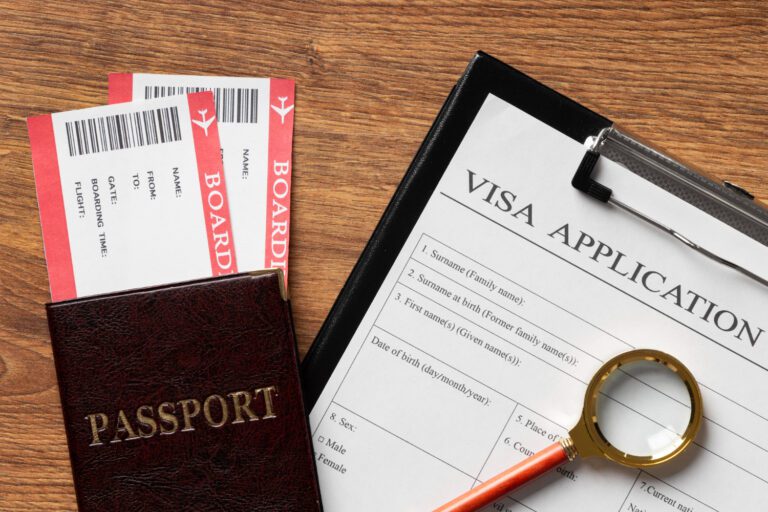As a Canadian, the world of international travel can sometimes feel as if it is a tangled mess of regulations and various rules. One usual concern regarding European trips is whether you are required to have a visa or not. For you to plan your European adventure without any problems, I will analyze different available visas and travel permits that are applicable to Canadians.
Table of Contents
Visa-free Countries in Europe for Canadians
Canadian passports offer its holders free access to many European states. As a Canadian passport holder, there are several destinations where you can go without applying for a visa before leaving your country. Notably, some of these nations involve the following:
- France
- Germany
- Italy
- Spain
- United Kingdom
- Netherlands
- Belgium
- Switzerland
- Austria
- Greece
- Portugal
- Sweden
- Denmark
- Norway
- Finland
- Ireland
It should be noted that even though you don’t need a visa, other types of permission such as the European Travel Information and Authorization System (ETIAS) may still apply later in this article.
Schengen Area: Explaining the Schengen Visa and Its Requirements
The Schengen Area comprises 26 European states that have abolished internal border controls embracing freedom of movement across their borders. Canadians need to comprehend the Schengen visa requirements so as to make their itinerary in case they want to visit several Schengen countries within their trip around Europe.
Do Canadians Need a Visa for Schengen Countries?
Generally speaking, Canadian nationals do not require visas for traveling within the region for up to three months during any six-month period. However, remember that this time frame is valid for all participating countries combined and not each individual nation.
Schengen Visa Application Process for Canadians
Canadians don’t necessarily require short stay schengen visas but there might be times when one needs them like long stays or certain purposes such as studying and working. The steps that an applicant has to follow when applying for a Schengen visa are:
- First, you must decide on the right country in Schengen through which you can apply depending on your main destination or where you will spend most of your time.
- Find all needed documents, including valid passports, travel itinerary, accommodation proof, travel insurance as well as financial documentation among others.
- Fill out the Schengen visa application form and book an appointment at the corresponding embassy or consulate.
- Attend the interview for visa and provide any additional information required or requested by them.
- The visa decision is usually delivered in 15 working days (in some cases up to 45 days).
Visa-exempt Countries in Europe for Canadians
In addition to the Schengen Area, there are other European countries that Canadians can visit without a visa. These include:
- United Kingdom (UK)
- Ireland
- Croatia
- Cyprus
- Romania
- Bulgaria
It’s important to note that the visa-free rules and duration of stay may vary for these countries, so it’s always a good idea to check the specific requirements before your trip.
ETIAS: The New Travel Authorization for Canadians Visiting Europe
ETIAS is the new authorization system that will be set in place to cater for the Canadian citizens and other visa-free visitors travelling within Schengen area. As of 2023, Canadians must have an ETIAS authorization before their trip to Europe.
The application process for ETIAS is relatively simple and can be completed online. The applicants are supposed to provide their personal information, travel information, and answer a few security questions. The ETIAS authorization is valid for three years or until the expiry of the applicant’s passport, whichever comes first.
Other Visa Requirements for Specific European Countries
Most European countries do not require visas from Canadians; however there may be some exceptions or additional requirements specific to certain countries. Such as:
- Russia: Canada needs a visa to enter Russia.
- Turkey: Canadians can get e-Visa or visa on arrival when visiting Turkey.
- Belarus: For Canada it needs a visa to visit Belarus.
It is important to research about the specific visa requirements of each European country you plan on visiting because they differ and change with time.
Tips for Smooth Travel to Europe as a Canadian
To ensure a hassle-free European travel experience as a Canadian, consider the following tips:
- Passport Validity: Ensure your Canada passport has at least 6 months remaining validity after your intended departure from Europe.
- Travel Insurance: Make sure you invest in comprehensive travel insurance that covers things like medical emergencies, cancellation or interruption of trips among others.
- Research Visa Requirements: Check out what kind of visa or travel permit the particular European state you want to go has so as to apply early enough
- Pack Wisely: This makes your movement around airports and railway stations less stressful by avoiding overcrowding items into luggage bags beyond necessary limits
- Stay Informed: Keep track of any changes in entry rules or travel restrictions since these may happen over time.
To ensure a seamless and worry-free European adventure, consider consulting with a travel expert who can guide you through the visa and travel authorization process. Contact us today to learn more about our personalized travel planning services.
Conclusion: Ensuring a Hassle-Free European Travel Experience for Canadians
Although navigating through the visa and travel requirements for Europe as a Canadian might seem like an uphill task initially, with the right information and preparation, you can have a smooth and memorable European vacation. Understanding Schengen visa, ETIAS, and the specific requirements of your visiting countries will ensure that you are able to start confidently on your journey within Europe without any concerns about visas.




